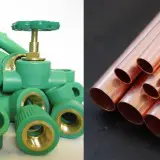Weeding Out Your Garden. How to Make Your Work Easier
Weeds invading your vegetable or flower garden are a problem all along your plants growth period, but especially in summer when fruits start growing and the plants need more water and nutrients. We give you some advice on weeding out your garden to make your work easier and prevent weed further proliferation.
1. Don’t dig up more than you have to
When you dig up your plants to air their roots and make water absorption easier for them, it’s very likely to bring out weed seeds hibernating in the soil and help them germinate. Dig up your flowers and vegetables only when it’s necessary.
2. Weeding out your garden. Mulching
This means covering the soil around the plant with a layer of organic material such as wood dust, peat, dry leaves or dry manure. Mulching helps keeping weed seeds from germinating, preventing them growing around your plants. It also enriches the soil with natural elements and improves its structure. And a healthy soil, filled with nutrients is not a good environment for weeds.
3. Pull out the weeds with your hands
The best way to remove weeds is by pulling them out with your hands as soon as they pop up. There are special tools to take out those with a taproot. Always use gardening gloves as there are plants, like nettle, that can give you a rash.
4. Weeding out your garden. Remove seeds
If your weeds have bloomed, you must remove their flowers first because that’s where the seeds will scatter from. So carefully cut off their tops with gardening scissors, then pull them out from the ground.
5. Don’t water them
When you water the garden, make sure you por or sprinkle the water at the root of your plants, not around the weeds. An efficient solution for your vegetable garden is drip irrigation. If they don’t get water, weeds don’t proliferate so easily. But some weeds have strong roots that will reach out and steal water from your vegetables.
Follow some tips on watering the vegetable garden HERE.
6. Weeding out your garden. Choose groundcover plants
Choose groundcovering flowers and herbs, such as thyme, for large areas in your garden. It’s a natural method to control weed proliferation. Plus, those plants are easy to care for and will bring a lot of color into your garden.
Credits: bakker.com
Photo credits: rodalewellness.com















